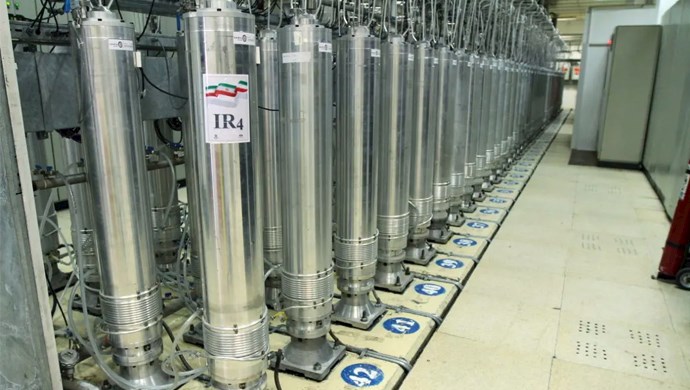Analysis by PMOI/MEK
Iran, November 2, 2021—The G20 Summit in Italy came to an end while world powers are still worried and uncertain over the future of Iran’s nuclear program and the Iranian regime’s intentions in rejoining nuclear negotiations in Vienna. In a joint statement, the elected leaders of United States, Germany, France, and the United Kingdom called on the Iranian regime to “return to a good faith effort to conclude our negotiations as a matter of urgency. That is the only sure way to avoid a dangerous escalation, which is not in any country’s interest.”
Despite the expressed inclination of Western powers to resume the nuclear talks, the regime has been running its counterparts in circles for four months. Since June, when the Vienna talks were stalled, the regime has been playing for time, making half promises and giving vague comments about how and when it will rejoin the negotiations. Meanwhile, it has been extorting the international community for concessions, continued to enrich uranium at unprecedented levels, refused to come clean on suspicious aspects of its nuclear program, and denied UN inspectors access to nuclear sites.
The regime’s continued testing of its counterparts’ will is even raising concerns among its own analysts and officials, several of whom have warned about the consequences of continuing provocative measures against the West.
While the regime has tried to project power by setting unreasonable prerequisites for coming back within the limits set by the 2015 nuclear deal, the truth is the exact opposite. In 2013, after years of nuclear standoff, the Iranian regime crawled to the negotiation table as it was getting crushed under the weight of international sanctions. At the time, Iranian regime supreme leader Ali Khamenei described the move as “heroic flexibility.”
This time around, the regime’s economic conditions are even worse than in 2013. It is faced with a bankrupt economy, a severe budget deficit, and a society that is on the verge of explosion. The only thing preventing the regime’s overthrow by the Iranian people is its brutal security forces, and even they are losing their efficiency as protests are becoming more frequent and intense. Continuing on the current path will put the regime on an inevitable standoff with the Iranian people, one that will be even more intense than the November 2019 protests, which brough the regime on the verge of collapse. A nation that lives under utter poverty and repression has nothing to lose and is afraid of nothing.
The regime has a two paths out of the current dilemma, all of which will have dire consequences for the rule of the mullahs. First, the regime can continue to avoid nuclear negotiations and instead slash expenses on ballistic missiles, nuclear weapons, and backing terrorist groups in the region. This will provide the regime with money to address the grievances of teachers, workers, drivers, retirees, and many other segments of the Iranian society who have been constantly protesting in recent months. But backing on terrorism and violence, the very foundations of its regional hegemony, will backfire within Iran’s borders and lead to the collapse of its terrorism and security apparatus. Regime officials have said time and again that if it ends its intervention in Syria, Iraq, Lebanon, and other countries, it will have to fight for survival on the streets of Tehran, Mashhad, Isfahan, and other major Iranian cities.
Alternatively, the regime can end its standoff and return to the talks to lift sanctions and ease economic pressure and dampen the public outrage at the worsening living conditions. But such a move would be a projection of weakness by the regime. Regime officials are warning that a return to the nuclear deal will lead to other demands by the international community and lead to the regime giving ground on its nuclear weapons ambitions, ballistic missiles program, terrorist projects, and human rights abuses, eventually leading to its collapse.
In any case, years of disregarding international norms and values has brought it to a point of deadlock, where it has no other option than to continue down the path of death and destruction.
What this means for the international community is that the regime will not negotiate in good faith. This reality is clearly evident in the presidency of Ebrahim Raisi as president. A regime that is headed by a serial killer and mass murderer does not intend to return into the good graces of the international community—it is desperately holding on to power with all its might.





